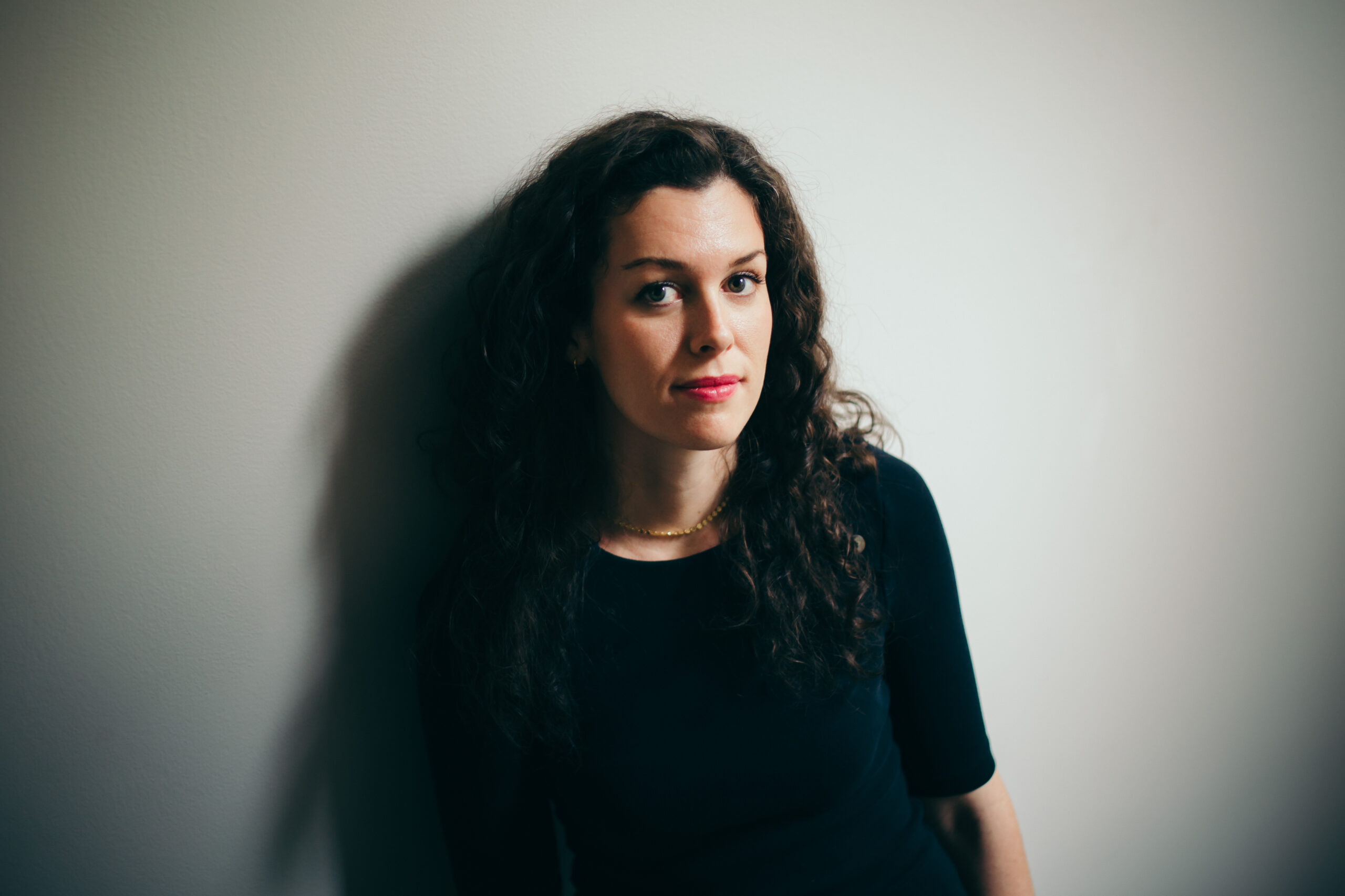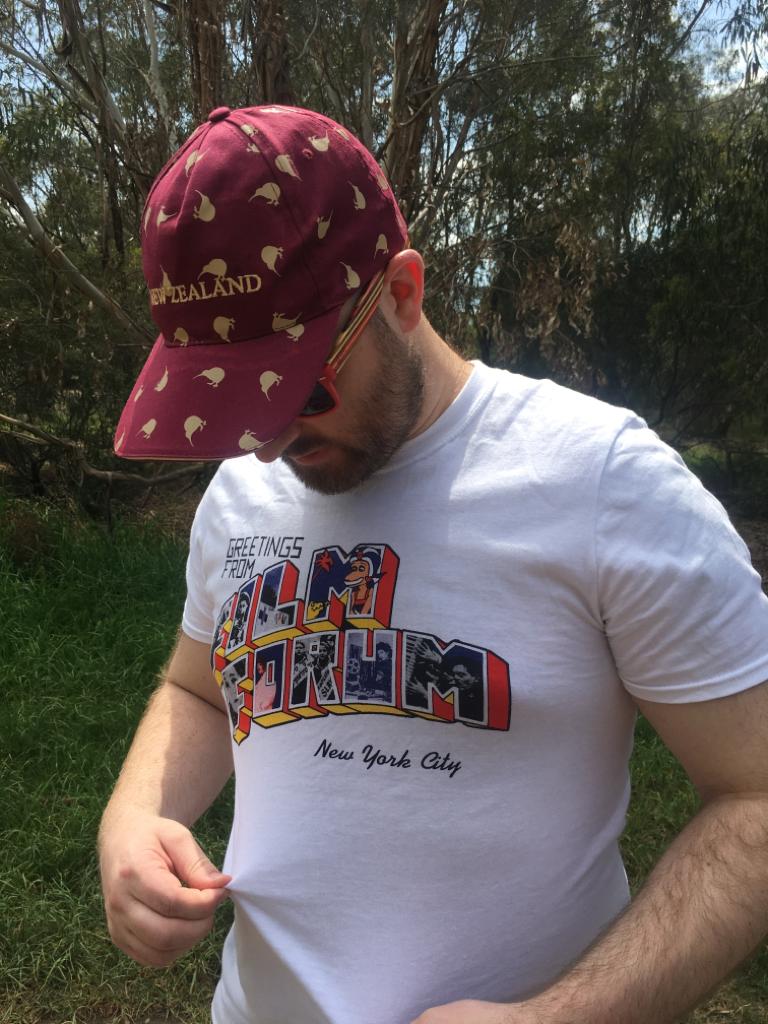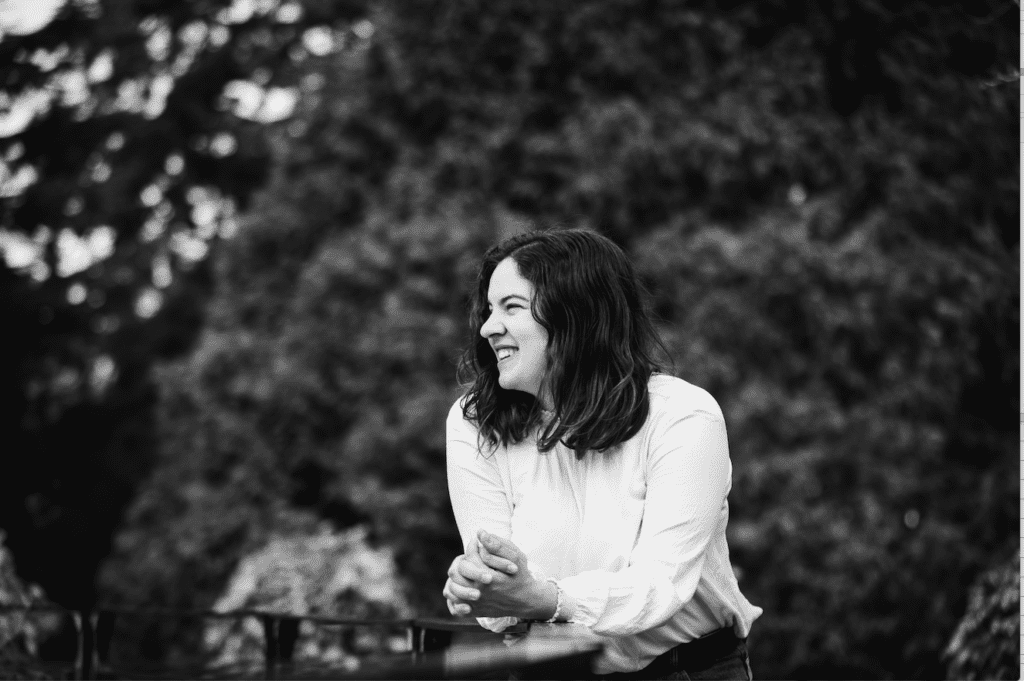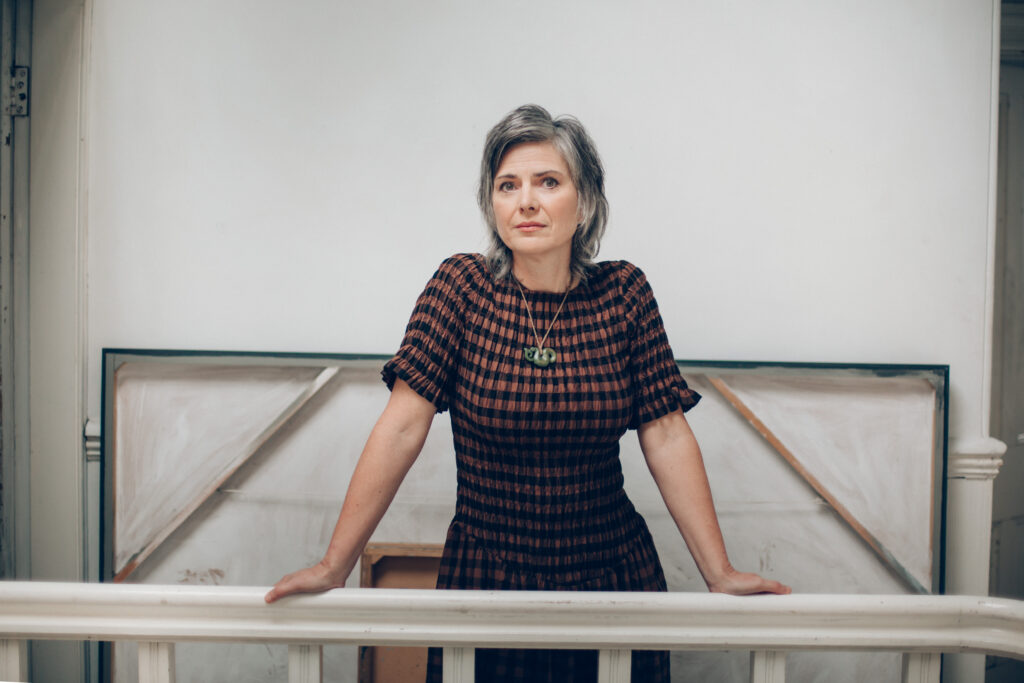Interviews
Gregory Bennett
Gregory is a writer and filmmaker from Wellington whose accent comes from Invercargill. They hold a Masters in Creative Writing from the IIML and currently work for a disability support services provider in Melbourne, Australia. Their story, Heat Death of the Internet, was published in our 110th issue and struck a chord with readers, amassing over 1600 views in the first week. Síle Mannion chatted to Gregory about their hit story.
I love the way you’ve taken the ‘red’ out of, what seems to me to be essentially a bit of a rant, by using the second person. It gives a gentler shade of rue tinged with frustration—is that entirely intentional? Or would you even agree with that ?
I love the second person and I’m always keen to find an excuse to use it. In this case it felt like the most natural fit—the first person would have felt like a ranty personal essay, instead of a work of fiction centring the reader. I’m not sure I would have enjoyed it as much.
It is a detailed observational piece but reads as…perhaps a more considered kind of stream of consciousness—did you write it that way, in one ‘go’ or ?
I tend to write the first draft of everything in a single sitting, and then edit, edit, edit in the following weeks. This was no exception. Once I realised it was taking the form of a free-flowing list, it came down to trying to get the right rhythm—setting up repetition then breaking it, turning the screws until I can’t stand it anymore. The first version was a lot longer, with references to autocorrect and self-checkouts, etc. but they got edited out of the flow at some point.
The end line is so good, it really grounds the whole piece, the earth wire: ‘You place a hold on them, then go get your shoes on.’ I find that so encouraging. Heartening.
The ending had to go in a different direction. I wanted the final paragraph—at first—to feel like more of the same, then perhaps even feel a touch sarcastic, before it becomes clear in its sincerity. It’s not all bad. There’s still joy to be found. Go get your shoes on.
The piece also reminds me a little of Beckett in its awareness of the absurdity of life and the humour and pathos of that…the parody. Or, at least, that’s what I took from it. It stands on its own but did you want to say something about that here?
Love Beckett! The absurdity of life is all-consuming and unavoidable. I feel like a lot of the moments mentioned in the story would feel a little inconsequential on their own, easy to brush off and keep moving, but there is something to be said for experiencing them all at once. I really wanted to put a flag in the ground for this moment in time. At some point in the distant future, the internet will end, and people will look back and talk about what a wonderful invention it was to connect all humankind. And I will agree! However.
Oh yes, what are your current writerly interests and concerns?
Nothing specific. Just reading and writing more humour and horror.

Photo credit: Ebony Lamb
Alie Benge
Alie has been takahē’s essay editor since 2022 and is sadly now moving on to other opportunities. We interviewed her to chat about what’s next, her essay collection Ithaca, and what’s been her favourite thing about editing essays at takahē.
Gosh! In the time you’ve been at takahē you’ve published an essay collection, moved countries (more than once?) and now you’re editing an anthology to be published next year – that’s a lot!
Technically I’ve only moved to one country, but it feels like I’ve moved here several times. I’ve had to fly between the UK and Aotearoa three times this year. That’s too often to be doing a 30+ hour flight.
My next project is a Substack, which isn’t ready enough to announce yet, but what the hell: I’m a tragic cook, so I thought why not write a newsletter about cooking! I’m also in the planning stages of a novel. I have all the characters in place, I just don’t know what they’re going to do yet.
Tell us more about Ithaca and the publishing process…
Ithaca is an essay collection about love and what it means to find your way home. It came about because I had to throw an entire memoir in the bin, but then looked in my essays folder and realised I’d been writing about the same thing for basically my whole career and had almost enough essays for a book.
I’m proud of Ithaca, but it’s a very personal book, so I’m also glad to be living in a different country while people read it.
What has been your favourite thing about being takahē’s essay editor? What do you think it has taught you?
I’ve loved seeking out new voices, reading journals to see who is out there that maybe hasn’t published much and asking if they have anything for takahē. But I’ve also not been able to do everything I’ve wanted to because of having to balance the editor role with work. I think what I’ve learned is that if I don’t have the time available to do the job service, someone else will, and they’ll do a great job. And if I love the magazine and love the Aotearoa lit scene, then it’s time to let the next person have a turn.
The personal essay is really having, as Lynley Edmeades put it, ‘a moment’. That’s pretty exciting, I think. Are you continuing to work on your own further essays?
Oh, I hope that’s true. I feel very evangelistic about essays and just want everyone to love them as much as we love fiction and poetry. And I’m so glad takahē is online now so that more people can read and share them. Cadence Chung’s essay in 109 is a belter.
Most of my writing this year has been for brands (gotta hustle to pay that London rent). I have written an essay for Otherhood, the anthology about not having kids that I’ve been co-editing. To be honest, after writing a whole memoir-esque collection of essays, I was a bit sick of my own voice. I’m slowly making a foray back into essays, but the appeal of fiction is that it’ll be a break from writing about myself.
What are you reading at the moment? Or, what was the last book you read that you really loved?
I just finished The Wren, The Wren yesterday. It was very sweeping and expansive. No one does families like Anne Enright. The thing with her books though, is that even though I love them and live so deeply in their world, once it’s done I couldn’t tell you a thing that happened. I wonder if other readers find that too.
The book that has stuck with me the most this year is Beyond Black by Hilary Mantel. It grabbed me by the lapels on the first page and still hasn’t quite let me go. I’ve now set myself a project to read everything she’s written. I’m working through Mantel Pieces, her collection of essays from the London Review of Books.
And continuing on from that question, if you could have dinner with one other writer, dead or alive, who would it be? What would you ask them?
It’s got to be Caroline O’Donoghue. Not every writer would be a good dinner guest, but she’s consistently hilarious and I’m sure she’s a great hang. The Rachel Incident was one of my favourite books from this year. It’s lively, a bit pulpy, and but also incredibly smart and incisive.
What advice would you give to someone starting out on the writing journey now?
Pick something very small to write about. Especially with essays, the smaller the better. But then use that small thing to look at something big. If you’re writing about rivers of the world, write about the smallest fish in the river. In Kathryn van Beek’s essay Going Dutch she used coffee beans to write about Dutch migration to New Zealand. Michelle Zauner used Korean food to write about grief in Crying in H Mart.
Also, make it weird. There’s so much seriousness and expectation attached to the word ‘essay’. But that means there’s more room to break the form. Play with genre, play with realism. And then submit it to takahē.
We’re really sad to see you go! But hoping you’ve got exciting and fulfilling opportunities coming up. What are you looking forward to in the new year?
I’m looking forward to coming back to Aotearoa in May to take Otherhood on the road. We’ve got a three-city tour planned, and we can’t wait to meet our contributors and the people who helped fund this collection through the crowdfunding campaign.
After that, I’m excited about time to write again! Otherhood has been such a gargantuan task and the work never seems to end. So even though I’ve loved it, there hasn’t been much capacity for anything else.
And of course, I’ll be eagerly awaiting to see who takes over as the takahē essays editor, and the essays they’ll bring us.
You can buy Ithaca from your local independent bookstore here.
Claudia Jardine
Author of Biter, published April 2023, our guest poet for Takahē 106
The best poetry, like yours, shows strong themes, perhaps what could be called obsessions. The way you use ‘double-cab utes in an urban environment’ in pieces with completely different subjects was really neat. Would you be able to talk a bit about these obsessions in your work?
Omg, yes I think obsession is the right word here. Double cab utes! They’re just, so, everywhere! And I keep seeing them with personalised license plates. To the best of my knowledge, there is a ute in my neighbourhood called J0SH and another one called JCK. I do obsess, I do. Not just about cars, although it’s weird to think that when I was a teenager I went to the Rising Voices slam final with a poem about Subarus and the things that the drivers of Subarus used to shout at me as they drove past. Perhaps cars come up because they are something that we have normalised as a society, even though we all know that the stuff that powers them is a finite resource (so we will only be able to use them for so long), more and more cars get made every year, and most car users just will not exercise common sense about the impact fuel emissions have on the environment. Despite all of this really solid science, we’re all like, whatever. I find our collective convenient ignorance on the topic fascinating. And when I find something fascinating, I think about it a lot, and can’t help but let it bump around with the other things my brain is processing. Hence, connections are made, images collide, poetry happens.
What were the first poetry books that mattered to you?
The Golden Treasury of Poetry, edited by Louis Untermeyer. A big old beige thing that was falling to pieces. My parents used to read poems from this anthology to me at bedtime, stuff like The Jumblies and The Inchcape Rock and The Owl and the Pussycat. Rhyme! Rhyme mattered to me so much. In those early days I think rhyme and metre felt like comfort, like being gently rocked. We didn’t have a lot of poetry around in our house, heaps of music though which is just as good. When I was about 15 I picked up an Emily Dickinson collection from Scorpio Books one weekend, and then my grandma gave me an old copy of The Prince’s Progress by Christina Rossetti, and then I got really into Pushkin… I think that’s about when I decided love poetry was my favourite.
Could you tell us more about what draws you to respond to classical literature and renaissance art in your poetry?
My mind goes in so many different directions when I think about this question. Let’s see. I am drawn to classical literature because I am interested in the world of the Ancient Mediterranean civilisations, and I am interested in this world because a) it’s the world my ancestors lived in and b) the fixation that some parts of western civilisation have on this world wants nuance, in my opinion. There is a wide variety of classical literature – though not as wide as Classicists would like, because we know that lots of this literature was lost – but history and martial narratives seem to dominate the discourse. And gosh, do people overread them! I think I started out on my journey as a translator thinking I was going to write translations of all the women writers from the Classical period whose work has survived in order to show that, you know, women in this period were making art too! And then I started thinking about how fun and horny and silly some of the epigrammists are, and I realised I wanted to celebrate that style of writing too. Responding to these epigrammists with my own verse is my way of asking, when it comes to love, how much has changed?
What do you think: writing is more about inspiration or perspiration? How do you keep going, either way?
I keep going because I am compelled to research the things that mystify and excite me, which means I am in the inspiration category. I am not a particularly prolific writer, poems bang around in my head for a while before I put them down on paper and start editing. I sustain this process by doing the activities that free up my imagination: walking, cycling, paper collage, staring at the ceiling, sitting on benches etc. Not a lot of perspiring happens.
I think we all need to do more sitting on benches! What advice would you give to someone starting out on the writing journey?
The topics of conversation that get you riled up? These are the secrets to finding your voice, I think. You want to know what moves you in order to know what kind of writer you don’t want to be.
Claudia Jardine is the reigning poetry slam champion of Ōtautahi. She likes to write, sing and play guitar. BITER, her new collection of poems, is published by Auckland University Press (April 2023).
Emma Hislop
Guest Fiction Writer takahē Issue 106, December 2022
What was the inspiration for this story? What process did you go through to shape it into its finished form?
After my son was born, the hospital threw out his whenua, despite us filling in a form stating we wanted to keep it, and informing, and reminding our midwife. They needed the space in the refrigerator. I was very distressed by this.
In te reo, the word for placenta – whenua – is the same as for land. This is no coincidence.
Traditionally in Māori culture, the whenua of newborns is buried in a significant place, most often with ancestral connections. This practice reinforces the relationship between the child and the land of their birth. There is a belief that human beings were first made from earth, from the body of Papatūānuku, the earth mother.
I guess it was my way of working it out, of getting my anger out on the page. It got me thinking about institutionalised racism, and the ways in which Māori are so affected by it. How there’s often such a disconnect between Pākehā systems and Te Ao maori. I tried to imagine what might happen if the relationship between the baby and the land was severed, causing a disconnect, and how to write that as fiction.
What are you working on now?
I’ve just finished editing a collection of short fiction, out in March with Te Herenga Waka University Press.
And I’m writing a new thing that’s longer than a short story. I think it’s probably going to be a novel. I have no idea what I’m doing. I’m writing scenes, and hoping I can sort of join them together.
What are you reading at the moment? Or, what was the last book you read that you really loved?
I’m currently staying up far too late at night reading Small Deaths, by Rijula Das. It’s incredible and she should be famous if she isn’t already.
If you could have dinner with one other writer, dead or alive, who would it be? What would you ask them?
One writer is mean! I’m going to say Natasha Brown. I’d probably ask her annoying technical questions about her book Assembly, which I loved. She said in a Zoom event I went to that she wrote, rewrote and edited the one draft as she went. This seems to be what I do.
What advice would you give to someone starting out on the writing journey?
I never feel qualified to give advice! If pushed, I’d probably suggest reading a lot, if you can find time. Find some mates to share your work with. Just do your thing.



Hi I am new to Takahe do this my first post.
I can relate to Emma’s last comment about doing your own thing. It took me a longtime to show someone else what I had written. Then I joined a local writers’ group and got tremendous help from published authors who were in attendance. I can also relate to how Emma speaks of not knowing where the ideas come from. I just write them down as they come to me and then sort them into some form of logical sequence.